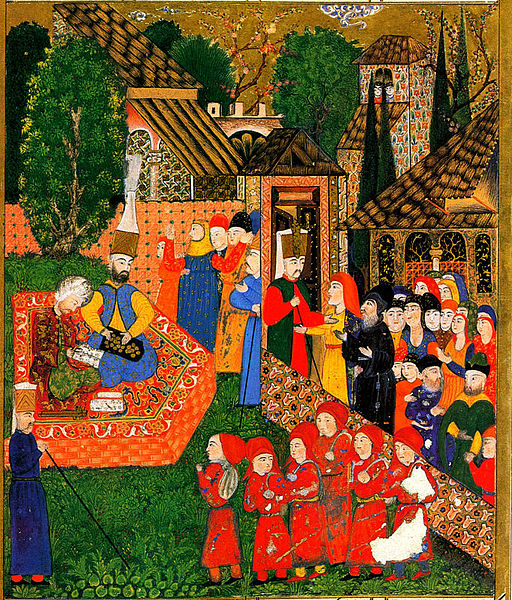Turkification, Turkization, or Turkicization describes a shift whereby populations or places received or adopted Turkic attributes such as culture, language, history, or ethnicity. However, often this term is more narrowly applied to mean specifically Turkish rather than merely Turkic, meaning that it refers more frequently to the Ottoman Empire's policies or the Turkish nationalist policies of the Republic of Turkey toward ethnic minorities in Turkey. As the Turkic states developed and grew, there were many instances of this cultural shift.
Illustration of the registration of Christian boys for the devşirme. Ottoman miniature painting, 1558.
Turkish nationalism is a political ideology that promotes and glorifies the Turkish people, as either national or ethnic definition. Turkish nationalism is associated with Turkification as a series of cultural and linguistic practices to promote the Turkish language and culture. It also has a complicated relationship with Muslim identity, Pan-Turkism, and Turanism.
Nationalistic personification of the Liberation of İzmir of 1922
An illustration depicting Atatürk's reforms. From right to left: The victory over the Greek invasion, the abandonment of the fez, the closure of the sectarian lodges, the adoption of the new Turkish alphabet, the adoption of the Turkish civil code.
A 5-lira banknote from the Atatürk era in Turkey. The grey wolf is a symbol of Turkish nationalism, as well as of Pan-Turkism.
Mehmet Emin Yurdakul, Turkish nationalist writer and politician; his writings and poems had a major impact on defining the term vatan ("Homeland" or "Motherland").





